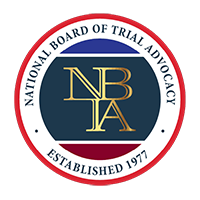Call Us Now
202-463-3030
Schedule a Free Consultation
When an individual suffers harm due to another’s negligence or intentional misconduct, it can lead to a personal injury case. Personal injury cases aim to compensate the injured party for the losses and hardships they’ve endured, helping them rebuild and move forward. Like other states, Virginia has its own set of laws and regulations surrounding these cases, and understanding the nuances can greatly affect the outcome of a claim.
One of the key elements to grasp in such cases is the concept of ‘damages’—the monetary compensation awarded to victims. Having the right personal injury lawyer by your side in Virginia can make a significant difference in the outcome of your case, ensuring that you receive the compensation you are entitled to under the law.
Complete this form and our team will get back to you as soon as possible







The state of Virginia recognizes different categories of damages in personal injury cases. These are primarily classified into economic, non-economic, and punitive damages. Each type has its purpose and parameters.
MILLION
Wrongful Death Settlement
MILLION
MILLION
Wrongful Death Verdict
MILLION
Premises Liability Settlement
MILLION
Wrongful Death Settlement
MILLION
Wrongful Death Verdict
MILLION
Medical Malpractice Settlement
MILLION
Personal Injury Settlement
MILLION
Car Accident Settlement
Economic damages are those losses for which a specific monetary amount can be assigned. This may be through mechanic reports for automobile accidents, medical bills, and time spent away from work resulting in loss of wages.
Non-economic damages are those losses that may not be a specific financial amount available through billing or an appraisal yet have cost the victim gravely.
While the previous types of damages are compensatory—meant to make the victim whole—punitive damages serve a different purpose. They are intended to punish the wrongdoer, especially in cases where their behavior was particularly malicious or recklessly indifferent to the rights of others. The goal is not just to penalize, but also to deter such behavior in the future. It’s worth noting that in Virginia, these damages are not awarded often and typically apply to especially egregious behavior.
Understanding these categories is crucial in determining the potential value of a personal injury claim. With firms like Regan Zambri Long guiding the way, victims can confidently navigate these classifications to ensure they receive their entitled compensation.
In Virginia, as with most jurisdictions, the damages awarded in personal injury cases aren’t arbitrary. Several factors play into the determination of the amount. Recognizing and understanding these can provide a clearer picture of a potential claim’s value.
The severity of the injury is the most influential factor in determining the amount of damage. A minor injury might not garner as significant compensation as a severe, life-altering one. For instance, a minor sprain may lead to a few weeks off work, while a traumatic brain injury could mean a lifetime of medical care and lost earning potential.
Beyond the immediate physical repercussions, the injury’s broader impact on one’s quality of life is considered. Can the person continue their hobbies? Is their relationship with their family affected? How does it alter their daily routines and life enjoyment?
Further, a well-documented claim can make a world of difference. This includes medical records, witness testimonies, photographs, and other relevant evidence that can substantiate the injuries and the damages sought. The more concrete the proof, the harder it is for the opposing side to dispute the claim.
It is important to note that Virginia is one of the few states that adhere to the doctrine of contributory negligence. This means that if a plaintiff is found even slightly at fault for the incident that caused their injuries, they may be barred from recovering any damages. Therefore, the degree to which the injured party might have contributed to the accident is a crucial consideration in Virginia personal injury claims.
Victims need to be aware of these factors. Each case is unique, and while some may seem straightforward, unexpected complexities can arise. Expert guidance, like that provided by Regan Zambri Long, ensures that every facet of a claim is evaluated, maximizing the potential for just compensation.

In personal injury law, damage caps refer to the limits on the amount of money awarded to plaintiffs in certain cases. Virginia has established such caps, particularly for specific personal injury claims. Understanding these limits is paramount for anyone seeking compensation in the state.
While caps are intended to bring balance, they can sometimes limit the compensation an injured person might otherwise receive, especially in cases with severe injuries and significant non-economic damages. Victims need to understand these limits early in the process, as they might influence decisions on settlements versus pursuing litigation.
However, know that caps can change. Lawmakers periodically revisit and adjust these limits, so staying updated on the current laws is essential.
While damage caps might seem limiting, they underscore the importance of skilled legal representation. With a deep understanding of Virginia’s legal landscape and the nuances of damage caps, personal injury attorneys at firms like Regan Zambri Long can strategize effectively, ensuring their clients receive the best possible outcome within the state’s guidelines.
Even with the most valid personal injury claims, certain missteps can significantly jeopardize a victim’s chance at full and fair compensation. Being aware of these pitfalls can save individuals both time and potential loss.
A personal injury claim is more than just presenting the facts of an accident. It requires strategy, foresight, and awareness of potential pitfalls. By sidestepping these common mistakes and having a skilled team like Regan Zambri Long by your side, you enhance the likelihood of securing the compensation you rightfully deserve.
Navigating the intricate web of personal injury law can be daunting for most. An adept attorney doesn’t just represent a client, but they also become a beacon of hope and clarity in often tumultuous times.
With years of experience in personal injury law in Virginia, Regan Zambri Long brings a wealth of knowledge, ensuring clients have top-tier representation. Their long-standing presence in the legal community has afforded them insights into the strategies of insurance companies and opposing lawyers. This experience is invaluable in crafting a compelling case. Regan Zambri Long’s track record of successful outcomes and substantial damage awards speaks volumes about their capability.
In the intricate dance of personal injury claims, having an experienced partner guiding the steps makes all the difference. With their unparalleled expertise, firms like Regan Zambri Long bolster the chances of a favorable outcome and offer invaluable peace of mind to those they represent.
If you or a loved one have been hurt in Virginia because of the negligence of another, contact Regan Zambri Long.
Have you or your loved one sustained injuries in Washington DC, Maryland or Virginia? Regan Zambri Long PLLC has the best lawyers in the country to analyze your case and answer the questions you may have.